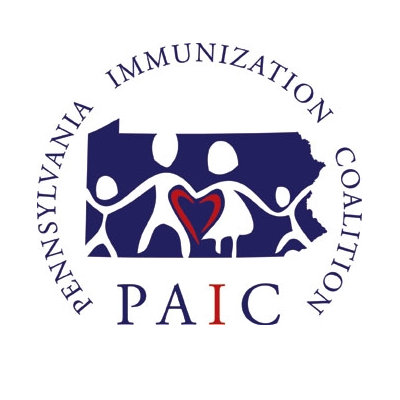Answers to Common Questions about Immigrants’ Access to the COVID-19 Vaccines
Answers to Common Questions about Immigrants’ Access to the COVID-19 Vaccines (The Torch)
By Ben D’Avanzo, Katherine Lundie, and Gabrielle Lessard
APRIL 12, 2021
People in immigrant communities and advocates have expressed concern about barriers that many people face when attempting to access COVID-19 vaccines. These barriers frequently are related to the concerns immigrants generally have when trying to access health care — concerns about documentation requirements, data privacy, eligibility, cost, and whether resources are available in their native language. This article provides answers to common questions regarding such concerns.
Are there any immigration status restrictions on who can get vaccinated?
No, the Centers for Disease Control and Prevention has stated that vaccines are available to anyone, including undocumented immigrants, regardless of their immigration status.
Are vaccinations free?
Yes — getting vaccinated should not cost you any amount of money. Individuals may be asked for their insurance information, and their insurer will be billed for the cost of vaccination, but out-of-pocket costs like cost-sharing and deductibles are prohibited. Medicaid will pay for vaccinations for anyone enrolled in Medicaid, including people who have restricted-scope Medicaid (for example, for emergencies or pregnancy).
For the administrative cost of vaccinating people who are uninsured, providers can bill the federal government through the Health Resources and Services Administration’s (HRSA’s) Provider Relief Fund. Providers can be reimbursed for vaccinating anyone who doesn’t have insurance that covers the vaccine, regardless of their immigration status.
Providers who participate in the Provider Relief Fund must attest to HRSA in their reimbursement requests that they asked for the following information:
a Social Security number (SSN),
a driver’s license or other state-issued ID, or
a state ID
However, requests for reimbursement may be submitted without this information, though such requests take longer to process. Therefore, though people who are uninsured may be asked for an SSN or ID, they are not required to provide them in order to get vaccinated.
Must I have a Social Security number in order to receive a vaccination?
Having an SSN is not a requirement for receiving a vaccination, but, as noted above, providers may ask you for one.
What types of documentation or verification documents are required to receive a vaccination?
The federal government has not imposed any documentation or verification requirements for individuals seeking to be vaccinated. However, some states and localities are requiring documentation of residency (living in the state or locality). Proof of residency varies by state. Individuals who cannot meet state or local documentation requirements may find that a community health center or other site has more flexible documentation requirements.
Will my personal information be shared with law or immigration enforcement?
The data use and sharing agreement (DUA) between the Centers for Disease Control and Prevention (CDC) and jurisdictions administering COVID-19 vaccinations requires that data provided by individuals may be used only in furtherance of the COVID-19 public health response. Some states have elected to add additional privacy protections to the DUA. Information about vaccine recipients may not be used for any civil or criminal prosecution or immigration enforcement. Neither the U.S. Department of Health and Human Services (HHS) nor the CDC will have access to or release identifiable patient information.
Will immigration officials conduct enforcement activity at vaccination sites or health centers?
No. The U.S. Department of Homeland Security has stated that it will not conduct immigration enforcement at vaccination sites and that it wants all immigrants, including people who are undocumented, to be vaccinated.
Will getting vaccinated affect an individual’s immigration status or immigration applications?
Getting vaccinated for COVID-19 will not affect the person’s or their family’s current or future immigration status or ability to naturalize to U.S. citizenship.
Is information about vaccination available in languages other than English?
Yes, the following websites provide information about COVID-19 vaccinations in multiple languages:
CDC Toolkit for Migrants, Refugees, and Other Limited-English-Proficient Populations
Translated Materials Library at the National Resource Center for Refugees, Immigrants, and Migrants
Your state’s public health website may also have additional resources in multiple languages. The National Asian Pacific Center on Aging has a webpage listing each state’s vaccination webpage, as well as information about assistance hotlines for speakers of several languages.
What can advocates to do improve immigrants’ access to COVID-19 vaccinations?
Despite the policies described above, many immigrants continue to face barriers to getting vaccinated. Advocates can work with their state and local health departments to undo burdensome documentation restrictions, or, at a national level, urge the CDC to issue nationwide standards prohibiting such requirements. They also can ensure that health departments and vaccine providers understand the existing policies, such as the fact that refusing to provide an SSN should not be grounds for denying vaccination.
Advocates can also push for greater investments in community-based organizations for outreach, education, and services, as well as investments in a higher quality and quantity of language access services and translated materials.
If advocates suspect federal policies are being violated, they can report them to the HHS Office of the Inspector General or file a civil rights complaint with the Office for Civil Rights.
This blog post will be updated as new developments occur — as vaccinations become more available, priority restrictions ease, policies change or are clarified, and vaccine “credentialing” systems (e.g., vaccine “passports”) and apps potentially become more common.
Ben D’Avanzo is a NILC senior health policy analyst; Katherine Lundie is a NILC state and local policy analyst; and Gabrielle Lessard is a NILC senior policy attorney.
